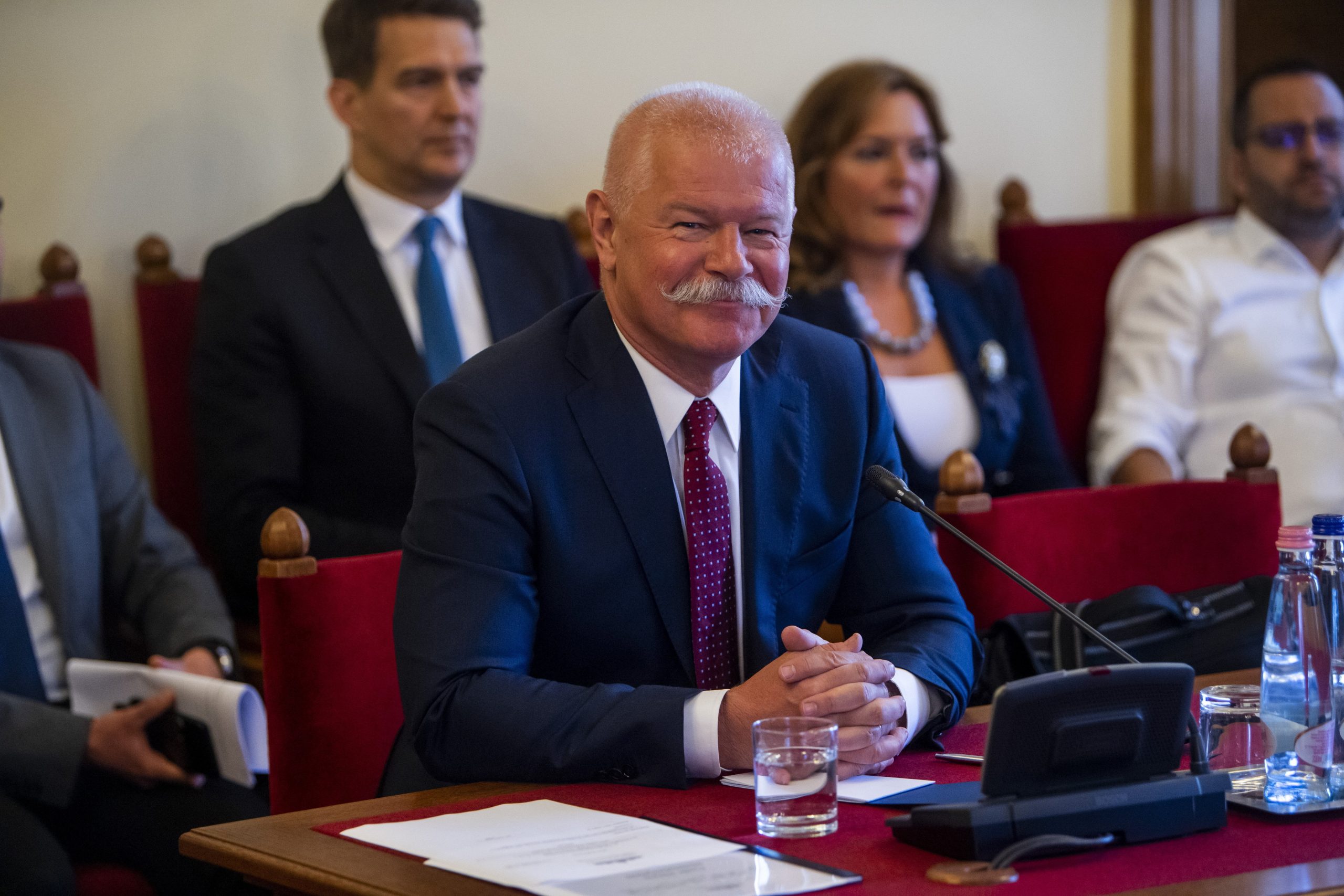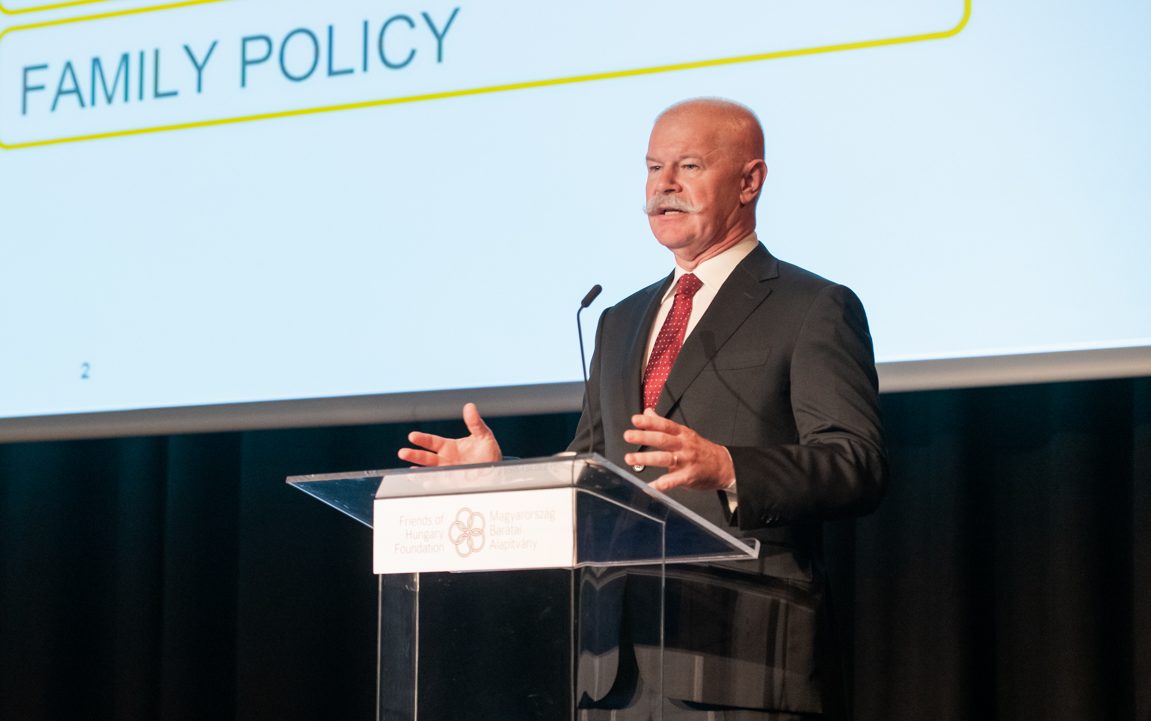
Assigned to oversee an unusual combination of areas, the newly established ministry can be regarded "an innovation itself", Csák said.Continue reading

Committed people from more than 20 countries, who want to and can do something for Hungary, are meeting at the VIII Conference of the Friends of Hungary Foundation this weekend in Budapest. The event was opened on Friday afternoon at Pesti Vigadó by the President of the Foundation, E. Sylvester Vizi.
The members of the Foundation are united by a spiritual impulse, they are Hungarians or love Hungarians, underlined the President of the Foundation before welcoming the Minister of Culture and Innovation, János Csák, whose speech served as the opening of the three-day program.
The Friends of Hungary Foundation was established in 2011 with the aim of informing the public in a value-oriented but objective way about the events and results from Hungary and from Hungarians from all over the world. The Foundation follows and documents the successful social, cultural, scientific and economic activities of Hungarians and consolidates the relations between Hungarians inside and outside their homeland. The Foundation contributes to the international recognition of Hungary and Hungarians based on their achievements. It is engaged in strengthening the togetherness of Hungarians and forms a bridge in the world of science, politics and various public figures.
The members of the community are people of Hungarian origin living abroad or sympathizing with Hungary. Members include Nobel Prize winners as well as successful bank CEOs, former ambassadors, foreign journalists, academics and opera singers. The foundation publishes two foreign-language news portals, “Hungary Today” and “Ungarn Heute,” and has organized an annual international conference for journalists since 2017.

President of the Friends of Hungary Foundation, E. Sylvester Vizi. Photo: Hungary Today
Echoing the words of E. Sylvester Vizi, minister János Csák emphasized that culture in a broader sense is what brings us together. The future of Hungary depends on our ability to use Hungarian intellectual capital in a way that generates additional profits in Hungary, he said.
According to Csák, the Ministry of Culture and Innovation is the ministry of the future, because the results of the ministry will not be visible in the short term, but in 3, 5 or even 10 years.
When you build roads, you must first answer the question of why and then the question of how,
the politician explained.
In his presentation, he talked about how Fidesz’s policy answers the question to the “why” with regards to four eternal human goods: the bond of belonging, the ability to care, the balance needed to enjoy the first two, and peace and security.
The answer to the first question is that society must be rebuilt and that this is done through families, which need proper family policies, the politician stressed. Europe is currently experiencing a “demographic autumn,” with women having their first child at an average age of 29. The Hungarian government wants to make women feel that they can commit to family life at an earlier age. The freedom to decide when mothers return to the labor market should also be guaranteed. The financial situation of families should be improved through tax relief and tax reductions.
This kind of family policy presupposes a strong economy as a condition, which means the development of businesses, Csák stressed. The goal is to have many small enterprises for a strong economy, for which innovation is essential. Workshops must be established within the small enterprise system and information exchange must be made more efficient to create more innovation, he explained.
The minister emphasized that culture is not a narrow concept but a way of thinking. To make progress, the general cultural level must also be raised.
Higher education is a very important element in this value chain, which is why the government has established university foundations. The government spends 2% of Hungary’s GDP on supporting university research and the war in Ukraine will not change that, he emphasized.
János Csák spoke about the Western trend in which knowledge has become increasingly valuable in the public sector and qualified work decreasingly valuable. If this devaluation is not stopped, he believes society will be divided. A new vocational education system is also needed, as there is a huge shortage of skilled labor in Hungary, with 60,000 guest workers currently working in the country.
In conclusion, the minister pointed out that if the birth rate is increased, the number of students in vocational education and universities will increase, the percentage of people with PhDs will also rise, there will be innovations and small enterprises using intellectual capital, helping the government to achieve its goals.
Featured Photo: Hungary Today